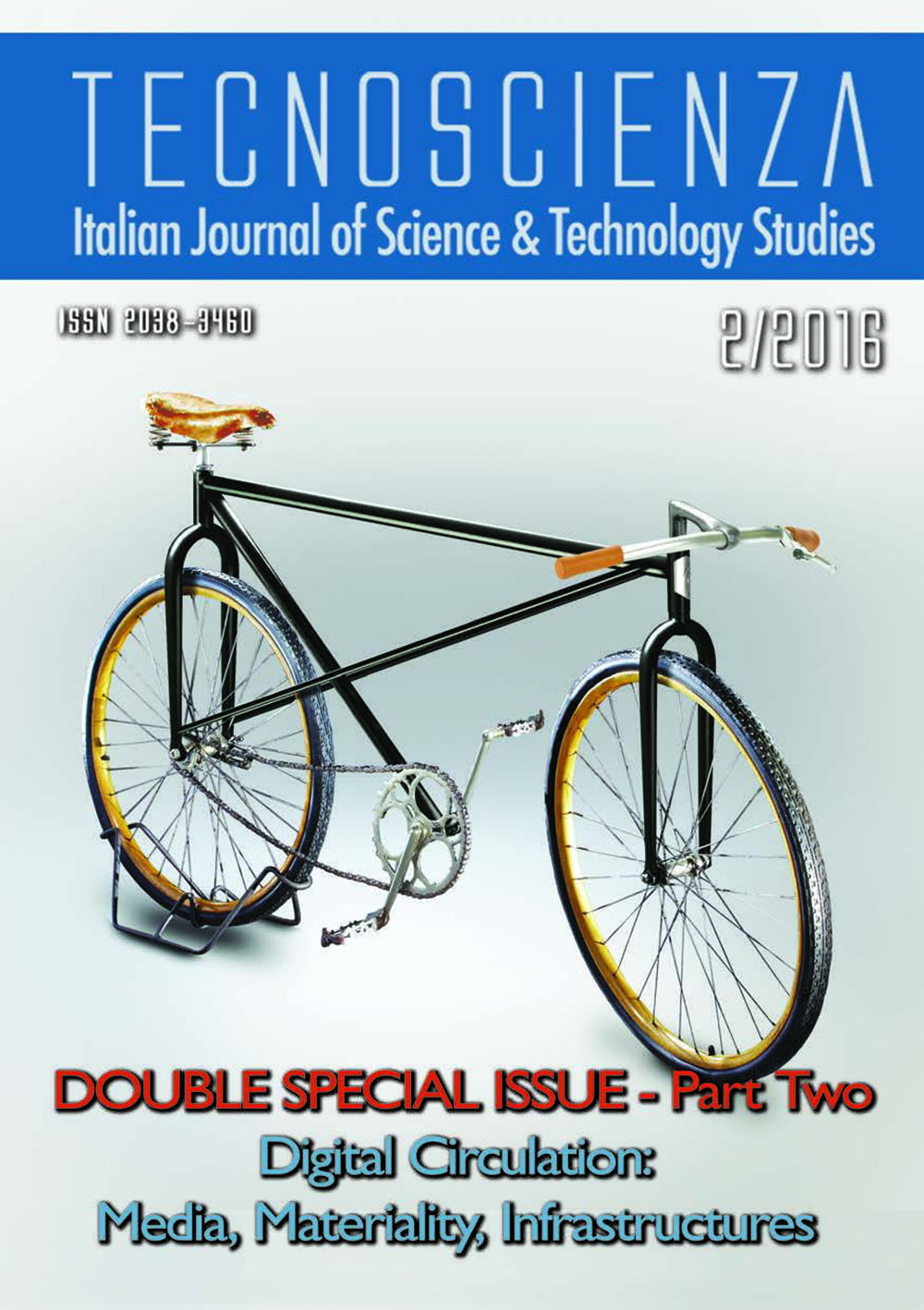Digital Literacy Circulation: Adolescents and Flows of Knowledge about New Media
DOI:
https://doi.org/10.6092/issn.2038-3460/17328Keywords:
new media, digital literacy, digital skills, digital inequalities, bricoleursAbstract
The aim of this paper is to discuss the output of an empirical research on digital skills in order to develop a typology of skills circulation among young digital users. Relying on research on digital literacy in media studies and on users in STS, in this article we start criticizing the concepts of “digital divide”, “digital inequalities” and “digital competencies”. Then, we present the principal results of a research study involving 50 adolescents in Italy about how they acquired their competences in the use of digital media. This gave us the opportunity to focus on the digital skills of young people and the development of their abilities in using digital media. The research outlines the patterns of circulation in digital competences among young people in relation to family, school and peer group, defining four kinds of “flows”: parental flow (involving fathers and mothers), peer flow (connected to friends and people of the same age), educational flow (referring to formal education) and technological flow (involving technological devices, such as computers, laptops, smartphones, tablets, etc.). The aim is to understand the interactions between digital skills and the social, institutional and technological conditions that influence the youth’s digital literacy for the everyday use of digital media.





